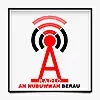Islamic Live Radio Stations
Radio Stations
- Akra FMAkra FM
- Al-Ansaar Radio

- Al-Faruq Purwokerto Banyumas <24kb aac+>

- Allahu Akbar Radio

- An-Nashihah Makassar <MP3 32 kbps>

- Annahj - Islam Arabic - إذاعة النهج الواضحAnnahj - Islam Arabic - إذاعة النهج الواضح
- Bass FM 93.2 Salatiga

- Beyzade FMBeyzade FM
- Bingöl FM

- Botan FMBotan FM
- Diyanet Kur'an RadyoDiyanet Kur'an Radyo
- Enderun FMEnderun FM
- FM 100 Pakistan

- Gözyaşı FMGözyaşı FM
- Islam2Day Channel 1

- Islam2Day Channel 2

- Islam2Day Channel 4

- Islamia

- Malayam Islam ilmusSalaf

- PeaceRadioPeaceRadio
- Radio Islam An-Nubuwwah Berau

- Radio Islam InternationalRadio Islam International
- Radio Islam Samarinda <Saluran 1, 32 kbps AAC+>

- Radio Islámica EspañolRadio Islámica Español
- Radio Izlam 4 Your Spiritual ThirstRadio Izlam 4 Your Spiritual Thirst
- Radio mohammad6Radio mohammad6
- Radio Muslim Jogja

- RadioSunnaRadioSunna
- Radyo İhyaRadyo İhya
- Radyo Kur'anRadyo Kur'an
- Ribat FMRibat FM
- salaammediasalaammedia
- Serhad FMSerhad FM
- The Salaf Way 100.3 FM Tripoli LY

- Voice of Islam

- إذاعة السنةإذاعة السنة
- إذاعة السنة

- إذاعة النهج الواضحإذاعة النهج الواضح
- إذاعة زدني العلميةإذاعة زدني العلمية
- النهج الواضحالنهج الواضح
- النهج الواضحالنهج الواضح
- النهج الواضحالنهج الواضح
- النهج الواضح 1النهج الواضح 1
- النهج الواضح 3النهج الواضح 3
- النهج الواضح قرآن كريمالنهج الواضح قرآن كريم
- قناة السنة النبوية

- قناة القرآن الكريم

Choose a Genre
Islamic Radio: Connecting Faith, Culture, and Community
Islamic radio stations play an essential role in providing programming focused on Islam, its teachings, and its rich cultural heritage. These stations serve as a vital resource for Muslims around the world, offering a diverse mix of religious content, cultural programming, and current affairs that help to educate, inspire, and connect listeners to their faith.
A Focus on Islamic Teachings
At the heart of Islamic radio programming is a deep commitment to promoting understanding and connection to Islam. These stations often feature the recitation of the Quran, offering listeners a chance to reflect on the holy text's verses. The soothing and reverent tones of Quranic recitation provide spiritual nourishment and serve as a reminder of the core values of the faith. Many Islamic radio stations also include lectures and talks by scholars of Islam, offering insights into Islamic history, theology, and practices. These lectures are an invaluable source of knowledge for both devout Muslims and those seeking to understand the faith more deeply.
Furthermore, Islamic radio stations often feature discussions on contemporary issues facing the Muslim community. These can include topics ranging from social, political, and economic matters to issues related to religious practice, personal development, and interfaith dialogue. By addressing current events and challenges in a thoughtful and balanced way, these stations help keep listeners informed while fostering a deeper understanding of the modern Muslim experience.
Embracing Islamic Music and Culture
Beyond religious teachings, Islamic radio stations also celebrate the cultural aspects of Islam. These stations play a variety of traditional Islamic music, including devotional songs (nasheeds), which evoke spiritual emotions and promote a sense of unity and devotion. The music is often accompanied by poetic recitations and storytelling, creating a rich auditory experience that highlights the diverse cultural traditions within the Islamic world.
The beauty of Islamic art, literature, and poetry is frequently showcased, providing listeners with a deep appreciation of the intellectual and artistic contributions of Muslim civilization. Stations may feature readings of classical Islamic literature, poetry recitations, and discussions on the cultural significance of these works, offering both entertainment and education.
Connecting the Muslim Community Worldwide
One of the most important functions of Islamic radio stations is their ability to connect Muslims from different corners of the world. Whether listeners are in predominantly Muslim countries or in regions where Islam is a minority faith, Islamic radio offers a platform for them to stay connected with their faith. These stations provide a sense of community and belonging, offering religious programming, guidance, and spiritual support that can be especially meaningful for Muslims living in areas where access to mosques or religious leaders may be limited.
In addition to religious content, Islamic radio stations also provide a space for global discussion and debate on issues relevant to the Muslim world. This can include coverage of local and international news, reports on political developments, economic trends, and social matters affecting Muslim communities. These stations often engage in thought-provoking discussions, allowing listeners to share their perspectives, ask questions, and offer insights on important topics.
Promoting Understanding and Appreciation of Islam
For non-Muslims, Islamic radio stations offer an opportunity to learn about the faith in a respectful and informative manner. Many stations actively work to foster interfaith understanding and dialogue by providing programming that explains the core principles of Islam, its history, and its cultural contributions. By presenting Islam in an accessible and engaging way, Islamic radio stations help break down stereotypes and misconceptions, promoting a more accurate and nuanced understanding of the religion.
Moreover, Islamic radio stations play a vital role in raising awareness of the diverse cultural traditions and practices within the Muslim world. By highlighting the richness and diversity of Islamic societies, these stations provide listeners with a broader perspective on global issues and encourage mutual respect and appreciation among different cultures.
Conclusion
Islamic radio stations offer a unique and invaluable service to Muslims and non-Muslims alike. By combining religious teachings, cultural programming, and news coverage, these stations connect listeners to their faith, culture, and community. Whether it's through Quranic recitation, discussions on contemporary issues, or the celebration of Islamic music and poetry, Islamic radio stations provide a platform for meaningful dialogue, education, and inspiration.
For Muslims, these stations are an important lifeline that fosters spiritual growth and connection. For non-Muslims, they offer a valuable opportunity to learn more about Islam and its vibrant cultural heritage. In both cases, Islamic radio stations contribute to greater understanding and appreciation of one of the world's most significant religions.
Islamic radio stations play an essential role in providing programming focused on Islam, its teachings, and its rich cultural heritage. These stations serve as a vital resource for Muslims around the world, offering a diverse mix of religious content, cultural programming, and current affairs that help to educate, inspire, and connect listeners to their faith.
A Focus on Islamic Teachings
At the heart of Islamic radio programming is a deep commitment to promoting understanding and connection to Islam. These stations often feature the recitation of the Quran, offering listeners a chance to reflect on the holy text's verses. The soothing and reverent tones of Quranic recitation provide spiritual nourishment and serve as a reminder of the core values of the faith. Many Islamic radio stations also include lectures and talks by scholars of Islam, offering insights into Islamic history, theology, and practices. These lectures are an invaluable source of knowledge for both devout Muslims and those seeking to understand the faith more deeply.
Furthermore, Islamic radio stations often feature discussions on contemporary issues facing the Muslim community. These can include topics ranging from social, political, and economic matters to issues related to religious practice, personal development, and interfaith dialogue. By addressing current events and challenges in a thoughtful and balanced way, these stations help keep listeners informed while fostering a deeper understanding of the modern Muslim experience.
Embracing Islamic Music and Culture
Beyond religious teachings, Islamic radio stations also celebrate the cultural aspects of Islam. These stations play a variety of traditional Islamic music, including devotional songs (nasheeds), which evoke spiritual emotions and promote a sense of unity and devotion. The music is often accompanied by poetic recitations and storytelling, creating a rich auditory experience that highlights the diverse cultural traditions within the Islamic world.
The beauty of Islamic art, literature, and poetry is frequently showcased, providing listeners with a deep appreciation of the intellectual and artistic contributions of Muslim civilization. Stations may feature readings of classical Islamic literature, poetry recitations, and discussions on the cultural significance of these works, offering both entertainment and education.
Connecting the Muslim Community Worldwide
One of the most important functions of Islamic radio stations is their ability to connect Muslims from different corners of the world. Whether listeners are in predominantly Muslim countries or in regions where Islam is a minority faith, Islamic radio offers a platform for them to stay connected with their faith. These stations provide a sense of community and belonging, offering religious programming, guidance, and spiritual support that can be especially meaningful for Muslims living in areas where access to mosques or religious leaders may be limited.
In addition to religious content, Islamic radio stations also provide a space for global discussion and debate on issues relevant to the Muslim world. This can include coverage of local and international news, reports on political developments, economic trends, and social matters affecting Muslim communities. These stations often engage in thought-provoking discussions, allowing listeners to share their perspectives, ask questions, and offer insights on important topics.
Promoting Understanding and Appreciation of Islam
For non-Muslims, Islamic radio stations offer an opportunity to learn about the faith in a respectful and informative manner. Many stations actively work to foster interfaith understanding and dialogue by providing programming that explains the core principles of Islam, its history, and its cultural contributions. By presenting Islam in an accessible and engaging way, Islamic radio stations help break down stereotypes and misconceptions, promoting a more accurate and nuanced understanding of the religion.
Moreover, Islamic radio stations play a vital role in raising awareness of the diverse cultural traditions and practices within the Muslim world. By highlighting the richness and diversity of Islamic societies, these stations provide listeners with a broader perspective on global issues and encourage mutual respect and appreciation among different cultures.
Conclusion
Islamic radio stations offer a unique and invaluable service to Muslims and non-Muslims alike. By combining religious teachings, cultural programming, and news coverage, these stations connect listeners to their faith, culture, and community. Whether it's through Quranic recitation, discussions on contemporary issues, or the celebration of Islamic music and poetry, Islamic radio stations provide a platform for meaningful dialogue, education, and inspiration.
For Muslims, these stations are an important lifeline that fosters spiritual growth and connection. For non-Muslims, they offer a valuable opportunity to learn more about Islam and its vibrant cultural heritage. In both cases, Islamic radio stations contribute to greater understanding and appreciation of one of the world's most significant religions.